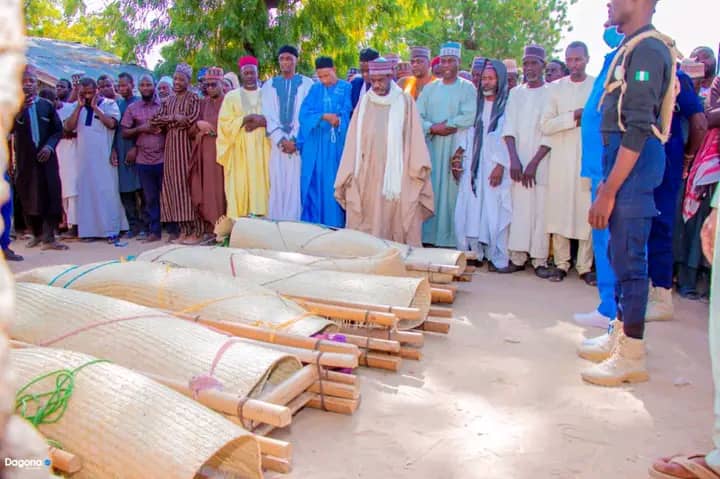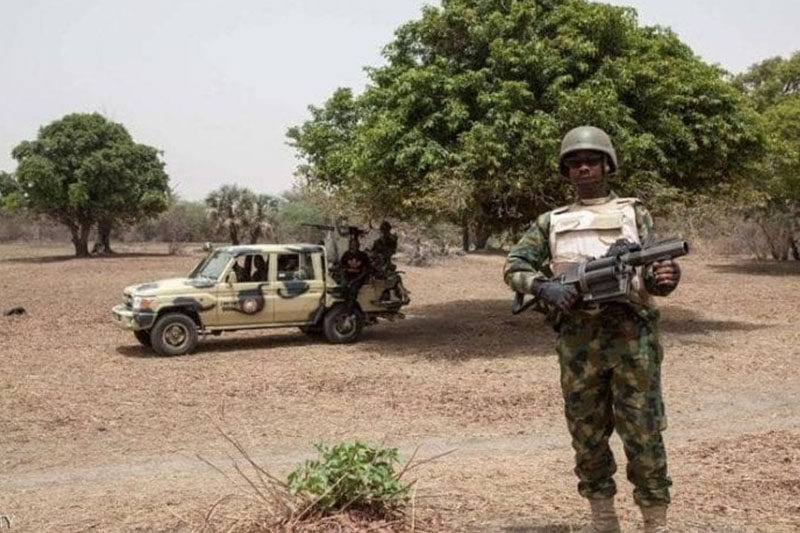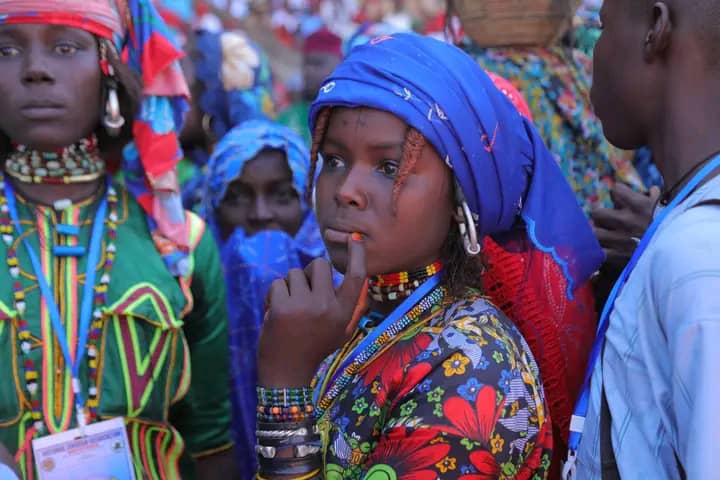Amid tight security, countless residents lined the streets of Maiduguri on Thursday to greet President Muhammad Buhari, who was on a one-day official visit to assess security in the violence-torn northeast, inaugurate completed projects and commission new ones.
He was met by Borno State governor Babagana Umara Zulum at Maiduguri International Airport.
Buhari cut the tape of the newly established Vocational Training Centre at Njimtilo and also officially opened the new Senate Building at the Borno State University.
Other projects that had been commissioned by Buhari and which were part of the inauguration were two large hostels with 150 rooms for 1,200 students; 34 duplex and bungalow units for professors, senior and intermediate staff, the 7km Jiddari-Polo road and drainage network and landscaping works.
Some infrastructural works, including establishing the university, were commissioned and completed under the former Borno State governor, Kashim Shettima.
The president commissioned two mega-size government day technical secondary schools in Njimtilo and Goni Kachallari, and an Islamic school near the Shehu’s palace, the home to the traditional ruler of Borno State.
The schools would include 60 air-conditioned classrooms for at least 2,400 pupils, vocational workshops, laboratories for sciences and information communications technology (ICT), auditoriums and sporting facilities.
Buhari also commissioned 4,000 housing units for internally displaced persons out of 10,000 housing units being constructed by the federal government in Borno.
The president and his newly appointed army chief, Major General Farouk Yahaya, visited police and security agencies, as well as troops at the Maimalari Cantonment.
Buhari was reported as saying: “By pulling together the collective resources and comparative advantages of the armed forces and other security agencies, we hope the enemy will now feel the ferocity of our firepower and the weight of our resolve.”
Zulum and other Borno politicians thanked Buhari for providing the much-needed infrastructure but pleaded with him to double his effort in supporting the military and other security agencies to quash the number of attacks by insurgents.
Muhammad Bukar, a resident of Mafoni in Maiduguri, told RNI that he was happy about the president’s visit, adding that it would help Buhari to understand the real situation in the city, the capital of Borno State, and to see how difficult it was to live with the increasing attacks, which started in 2009, by insurgents.
But not everyone in Maiduguri was happy about the president’s visit.
Some said it was “unimportant” because it would not add value to the state and neither would it bring an end to the attacks by extremists.
Others said Buhari had not done anything to improve the quality and wellbeing of their lives, even though they had voted for him in the elections.
Abubakar Hamza, a resident of Maiduguri, said many people could not go to work or school because movement was restricted in some areas of the city. He described the visit as an “inconvenience”.
Resident Malam Musa said he would have liked to have thanked the president for providing the much-needed infrastructure but he would have told him the “truth” about the economic situation of people in Borno.
“I would have told him that the people of Maiduguri are the poorest among the poor in the country,” he said.
Buhari thanked the people of Borno State for giving him a warm welcome and ordered the federal ministry of health to work with the Borno government to identify areas of support, such as providing equipment and manpower, in the ongoing construction of Borno State University Teaching Hospital.
This visit was quite the contrary to Buhari’s earlier visit to the state on February 12 last year when residents crowded the streets to boo at the president, who was on a “sympathy visit” in the wake of an attack on travellers and farmers by members of the Jamā’at Ahl as-Sunnah lid-Da’way Wa’l-Jihād (JAS), commonly known as Boko Haram.
There was no booing at the president during this visit.








